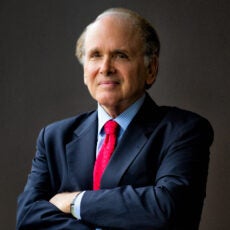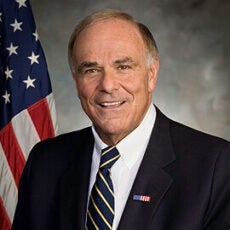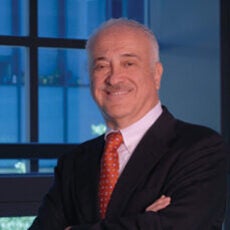Watch the Carnot Prize ceremony.
2015 Carnot Prize Award Ceremony and Center Opening
Event Summary
The Carnot Prize will be presented to Dr. Yergin by former Governor Edward Rendell (C’65) in recognition of his “distinguished contributions to energy policy through scholarship and/or practice.” A lecture by Dean-Emeritus Eduardo Glandt (GCh’75 Gr’77), titled “The Second Law: A Beautiful Insight,” will precede the presentation, with a reception and guided tours of the new space by the project architects to follow.
About the Carnot Prize
The Carnot Prize memorializes French scientist Sadi Carnot, who in 1824 published Reflections on the Motive Power of Fire at the age of 28. Carnot presented the first workable theory of the maximum efficiency of a heat energy, which converts thermal energy into mechanical energy available for work. While unappreciated during his lifetime, Carnot’s insights became the basis for the second law of thermodynamics and the concept of entropy. Carnot recognized that the power of the steam engine would “produce a great revolution” in human affairs. The Carnot Prize is intended to honor those who have revolutionized our understanding of energy policy.
This year’s Prize will be awarded to Dr. Daniel Yergin, who concluded his latest book, The Quest: Energy, Security and the Remaking of the Modern World (2011), with the story of Carnot. Dr. Yergin, vice chairman of the research firm IHS, is a world-recognized authority on global energy policy and markets. The Quest has been hailed as “a masterly piece of work” by The Economist and The New York Times said it is “necessary reading for chief executive officers, conservationists, lawmakers, generals, spies, tech geeks, thriller writers.” Dr. Yergin won the Pulitzer Prize for his book, The Prize: The Epic Quest for Oil, Money and Power (1991), which has been translated into 19 languages. Both The Prize and another book, Commanding Heights: The Battle for the World Economy (2002), were made into PBS/BBC television series.
Daniel Yergin
Vice Chairman, IHS MarkitDaniel Yergin is the Vice Chairman of IHS Markit. He is the recipient of the 2015 Carnot Prize for distinguished contributions to energy policy.
Edward Rendell
Former Governor, PennsylvaniaEdward G. Rendell served two terms as Governor of Pennsylvania (2003-2011). He presented the 2015 Carnot Prize to Daniel Yergin.
Eduardo Glandt
Dean Emeritus and Professor of Chemical and Biomolecular Engineering, SEASDr. Eduardo Glandt is Dean Emeritus and Professor of Chemical and Biomolecular Engineering at the School of Engineering and Applied Sciences (SEAS) at the University of Pennsylvania. His keynote lecture honored this year’s Carnot Prize recipient.
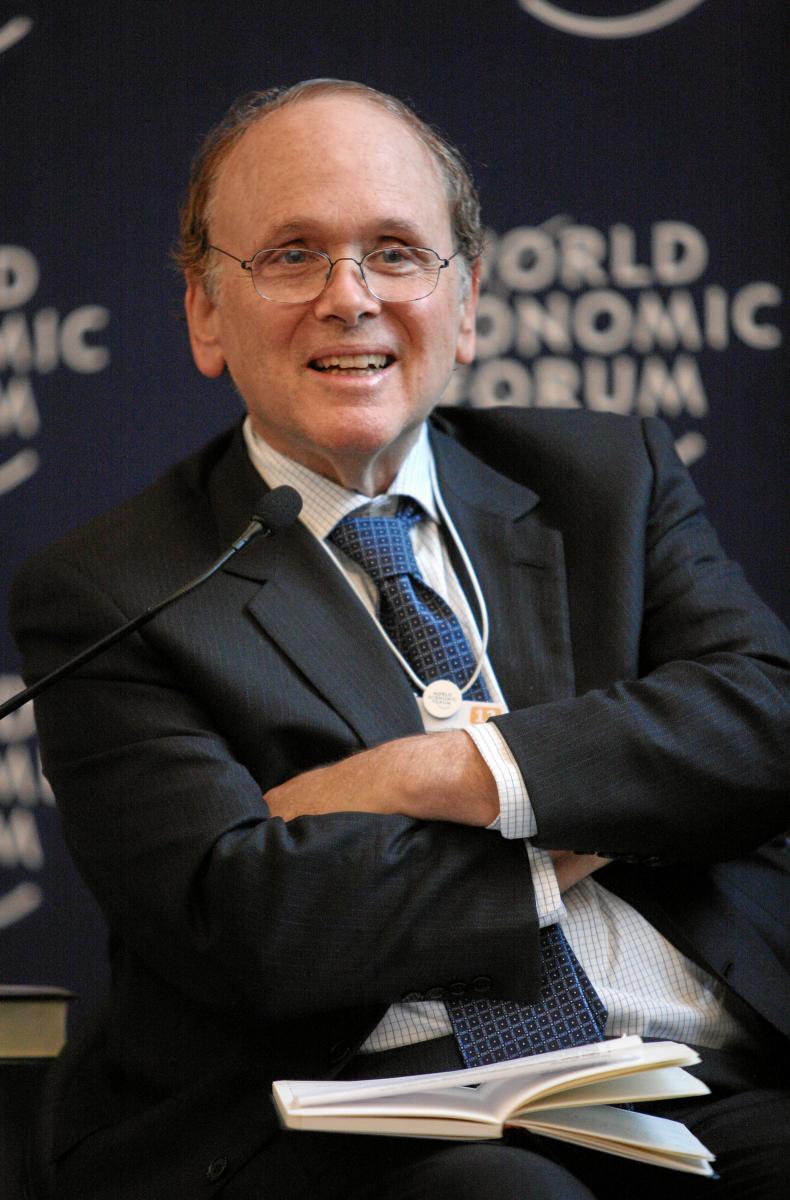
This year’s Prize will be awarded to Dr. Daniel Yergin, who concluded his latest book, The Quest: Energy, Security and the Remaking of the Modern World (2011), with the story of Carnot. Dr. Yergin, vice chairman of the research firm IHS, is a world-recognized authority on global energy policy and markets. The Quest has been hailed as “a masterly piece of work” by The Economist and The New York Times said it is “necessary reading for chief executive officers, conservationists, lawmakers, generals, spies, tech geeks, thriller writers.” Dr. Yergin won the Pulitzer Prize for his book, The Prize: The Epic Quest for Oil, Money and Power (1991), which has been translated into 19 languages. Both The Prize and another book, Commanding Heights: The Battle for the World Economy (2002), were made into PBS/BBC television series.
Dr. Yergin earned his B.A. from Yale University and his Ph.D. from Cambridge University in England, where he was a Marshall Scholar. Prior to founding Cambridge Energy Research Associates, which was acquired by IHS in 2004, he taught at the Harvard Business School and the Harvard Kennedy School of government. He is a member of several organizations, including the National Petroleum Council and the U.S. Secretary of Energy’s Advisory Board. He is a trustee of the Brookings Institution and a director of the Council on Foreign Relations and the New America Foundation. He is also on the advisory board of the Massachusetts Institute of Technology Energy Initiative and the Yale University Climate and Energy Institute. In 2014, he received a Lifetime Achievement Award from the Prime Minister of India and the James Schlesinger Medal for Energy Security from the U.S. Department of Energy.
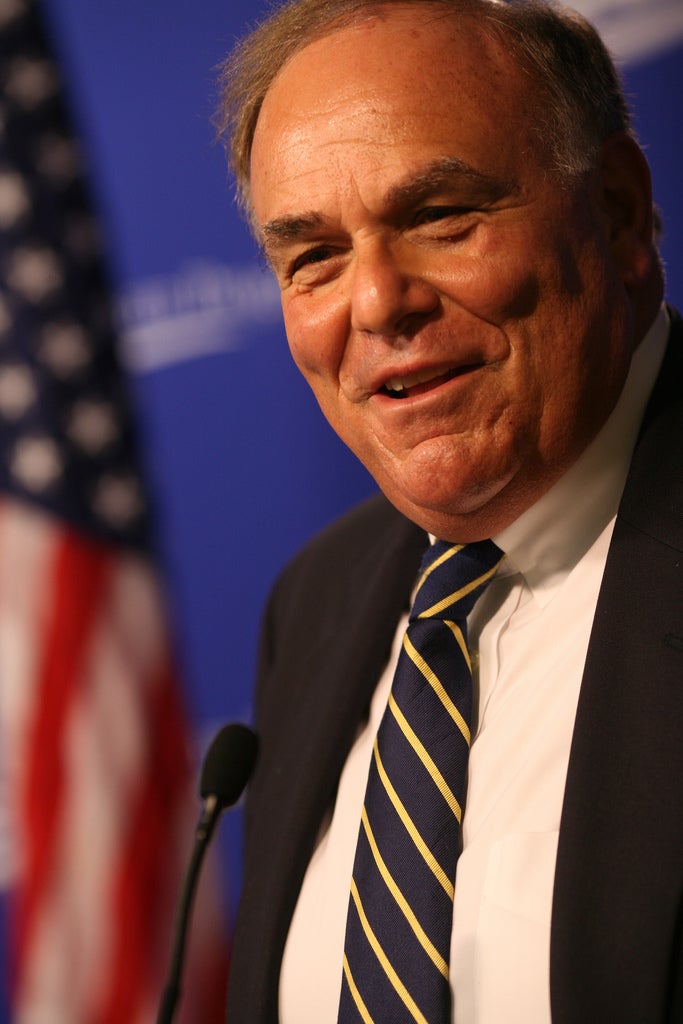 Edward G. Rendell served two terms as Governor of Pennsylvania (2003-2011). As Governor, Rendell was committed to making government more responsible and responsive to the public’s needs. During his two terms as Mayor of Philadelphia (1992-2000), Rendell eliminated a crippling deficit, balanced the City’s budget, and generated five consecutive budget surpluses. Before serving as Mayor, he was elected District Attorney of Philadelphia for two terms from 1978 through 1985. Rendell also served as Chairman of the Democratic National Committee during the 2000 Presidential election. He currently sits on several boards, supports multiple non-profit organizations and teaches government and politics courses at the University of Pennsylvania. Governor Rendell is a champion for progress in the area of alternative energy, and now serves as a consultant or board member for several green and alternative energy firms, including Own Energy, The Efficiency Network and VNG.co. An Army veteran, he holds a B.A. from the University of Pennsylvania and a J.D. from Villanova Law School.
Edward G. Rendell served two terms as Governor of Pennsylvania (2003-2011). As Governor, Rendell was committed to making government more responsible and responsive to the public’s needs. During his two terms as Mayor of Philadelphia (1992-2000), Rendell eliminated a crippling deficit, balanced the City’s budget, and generated five consecutive budget surpluses. Before serving as Mayor, he was elected District Attorney of Philadelphia for two terms from 1978 through 1985. Rendell also served as Chairman of the Democratic National Committee during the 2000 Presidential election. He currently sits on several boards, supports multiple non-profit organizations and teaches government and politics courses at the University of Pennsylvania. Governor Rendell is a champion for progress in the area of alternative energy, and now serves as a consultant or board member for several green and alternative energy firms, including Own Energy, The Efficiency Network and VNG.co. An Army veteran, he holds a B.A. from the University of Pennsylvania and a J.D. from Villanova Law School.
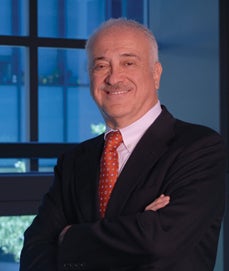 Dr. Eduardo Glandt is Dean Emeritus and Professor of Chemical and Biomolecular Engineering at the School of Engineering and Applied Sciences (SEAS) at the University of Pennsylvania. Dr. Glandt led SEAS from 1999-2015, planning and successfully implementing strategic initiatives on information technology, biotechnology and nanotechnology. During his tenure, Dr. Glandt raised funds to physically expand the School, constructing exceptional, award-winning buildings such as the Krishna P. Singh Center for Nanotechnology, Skirkanich Hall, and the Melvin J and Claire Levine Hall. Dr. Glandt’s research at the University of Pennsylvania focuses on surface and colloidal science, transport processes, and molecular simulation. He was elected to the National Academy of Engineering in 1996 and is the recipient of numerous distinguished teaching awards. He received a bachelor’s degree from the University of Buenos Aires and a master’s degree and Ph.D. in chemical engineering from the University of Pennsylvania.
Dr. Eduardo Glandt is Dean Emeritus and Professor of Chemical and Biomolecular Engineering at the School of Engineering and Applied Sciences (SEAS) at the University of Pennsylvania. Dr. Glandt led SEAS from 1999-2015, planning and successfully implementing strategic initiatives on information technology, biotechnology and nanotechnology. During his tenure, Dr. Glandt raised funds to physically expand the School, constructing exceptional, award-winning buildings such as the Krishna P. Singh Center for Nanotechnology, Skirkanich Hall, and the Melvin J and Claire Levine Hall. Dr. Glandt’s research at the University of Pennsylvania focuses on surface and colloidal science, transport processes, and molecular simulation. He was elected to the National Academy of Engineering in 1996 and is the recipient of numerous distinguished teaching awards. He received a bachelor’s degree from the University of Buenos Aires and a master’s degree and Ph.D. in chemical engineering from the University of Pennsylvania.
